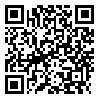BibTeX | RIS | EndNote | Medlars | ProCite | Reference Manager | RefWorks
Send citation to:
URL: http://rjms.iums.ac.ir/article-1-2781-en.html
2- Iran University of Medical Sciences
Background: Self-medication
is a serious health problem. The aim of this study is determining the effect of
education based on health belief model on improving the preventive behaviors of
self-medication in women under the supervision of health institutions of zone 3
of Tehran.
Methods: This
quasi-experimental case-control survey was carried out on 88 women. Sampling
method was clustering and data collection tools was researcher-built
questionnaire based on constructs of health belief model (self-efficacy,
susceptibility, severity, benefits and perceived barriers) and checklist of
performance in self-medication its validity and reliability were measured. Initially
the questionnaire and checklist were completed for both the groups. The
educational intervention was designed according to the results of the above
mentioned stage, and implemented for experimental group in the form of 3
sessions for 90 minutes through lecture, questions and answers, group
discussion film and slide methods. The data were analyzed in SPSS16 statistical software by
descriptive and analytical statistical tests.
Results: Before educational intervention, there
was no significant difference between the average of awareness, self-efficacy,
susceptibility, severity, benefits and perceived barriers, perceived
self-efficacy and prevention of self-medication behavior in both experiment and
control groups (p> 0.05) however after educational intervention between the
two groups of experiment and control, there was significant difference in all
the variables (p<0.001). Also, average performance showed significant
relationship with the educational level in case group.(p= 0.03). Radio and
television were the first and most important guidance in %65 of experimental
women and %77.5 of control women.
Conclusions: Education based
on health belief model improved the perceptions and behavior of women in
prevention of self-medication.





